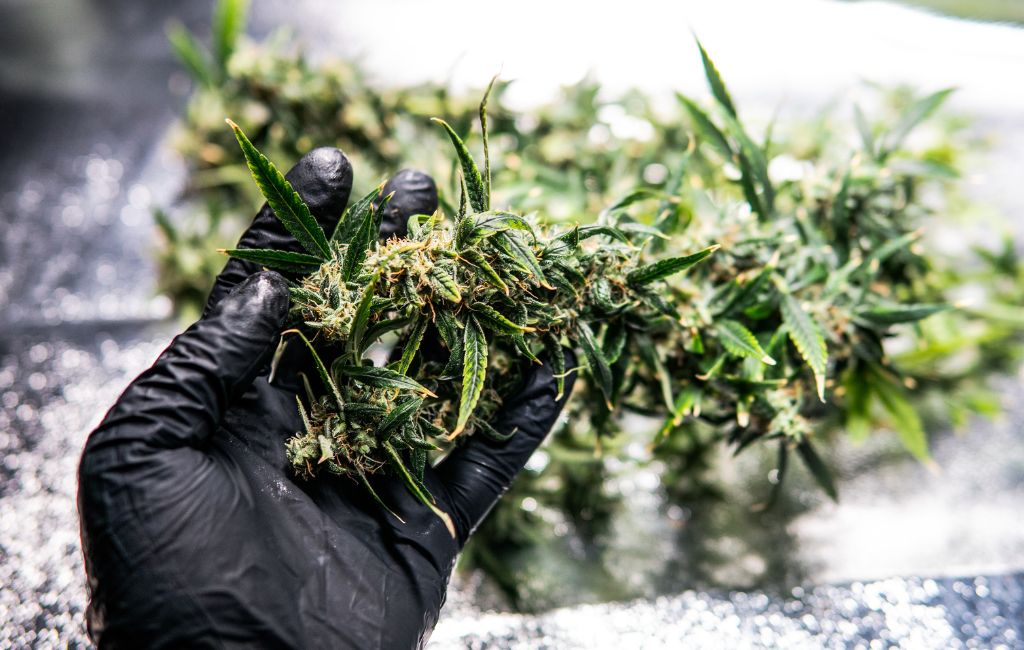Healing Power of THCa Flower Benefits
The world of cannabis is vast and varied, with numerous compounds offering unique benefits. Among these, THCa (tetrahydrocannabinolic acid) has gained attention for its potential healing properties. Unlike THC, THCa is non-psychoactive, making it an appealing option for those seeking therapeutic effects without the high. This article explores the THCa flower benefits, supported by research and real-world examples.
Understanding THCa
THCa is a cannabinoid found in raw and live cannabis plants. It is the precursor to THC, the compound responsible for the psychoactive effects of cannabis. When cannabis is heated through smoking, vaping, or cooking, THCa converts to THC. However, when consumed in its raw form, THCa offers a range of potential health benefits without the psychoactive effects.
Non-Psychoactive Nature
One of the primary attractions of THCa is its non-psychoactive nature. This makes it suitable for individuals who wish to avoid the high associated with THC. Patients can incorporate THCa into their daily routines without impairing their cognitive functions or daily activities.
Potential Health Benefits
Research into THCa is still in its early stages, but preliminary studies and anecdotal evidence suggest several potential health benefits:
- Anti-Inflammatory Properties: THCa has shown promise in reducing inflammation, which can be beneficial for conditions like arthritis and other inflammatory diseases.
- Neuroprotective Effects: Some studies suggest that THCa may help protect brain cells, potentially offering benefits for neurodegenerative diseases such as Alzheimer’s and Parkinson’s.
- Anti-Emetic Properties: THCa may help reduce nausea and vomiting, making it a potential option for patients undergoing chemotherapy or those with chronic nausea.
- Antioxidant Properties: As an antioxidant, THCa can help combat oxidative stress, which is linked to various chronic diseases.
Case Studies and Research
Several case studies highlight the potential of THCa in medical applications. For instance, a study published in the British Journal of Pharmacology found that THCa exhibited anti-inflammatory and neuroprotective properties in animal models. Another study in the Journal of Clinical Investigation suggested that THCa could reduce nausea and vomiting in animal subjects.
While these studies are promising, more research is needed to fully understand the therapeutic potential of THCa in humans. Ongoing clinical trials aim to provide more comprehensive data on its efficacy and safety.
Consumption Methods
THCa can be consumed in various ways, each offering different benefits:
- Raw Consumption: Consuming raw cannabis leaves or flowers in smoothies or salads preserves THCa in its natural form.
- Tinctures and Oils: These products allow for precise dosing and can be added to food or beverages.
- Topicals: THCa-infused creams and balms can be applied directly to the skin for localized relief.
Choosing the Right Product
When selecting THCa products, consider factors such as potency, purity, and the reputation of the manufacturer. Lab-tested products ensure that you are getting a high-quality product free from contaminants.
Legal Considerations
The legal status of THCa varies by region. In some areas, it is classified similarly to THC, while in others, it is considered legal due to its non-psychoactive nature. Always check local regulations before purchasing or consuming THCa products.
Conclusion
THCa offers a promising avenue for those seeking the therapeutic benefits of cannabis without the psychoactive effects. Its potential anti-inflammatory, neuroprotective, and anti-emetic properties make it an intriguing option for various health conditions. As research continues to unfold, THCa may become a staple in the toolkit of natural remedies. For those interested in exploring its benefits, understanding the available consumption methods and legal considerations is key to making informed decisions.
